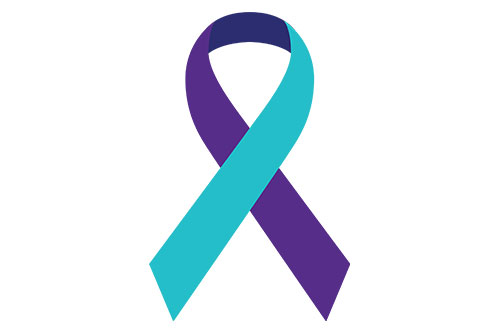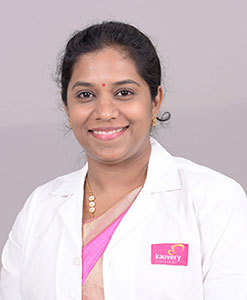
Suicide remains one of the most complex of all human behaviours. For ages,the elusiveness and complexity of the phenomenon has been a subject of study by diverse fields such as sociology, philosophy, medicine, psychology and spirituality- yet the answers remain unclear.
Our search for answers and need for solutions is stronger than ever as this global public health epidemic is showing alarming trends of increase.
The WHO estimates that 8 lakh people die by suicide every year, across the globe. India is labelled as the suicide capital of south-east Asia with a prevalence rate of 11/1 lakh population closely paralleling global suicide rates. We are witness to even more worrying trends… there has been a shift in the predominance of suicides from the elderly to the young all over the world, and is most noticeable in a country like ours which has the world’s largest youth population, brimming with 356 million youths. This malaise poses a serious threat to our nation’s social and economic development leave alone the irreparable and irreversible psychological pain that permanently befalls upon the families of the victims.
It would be highly reductionistic to think of suicide as triggered by a single causative factor. Suicide is often a tragic culmination of multidimensional pathogenic factors. These etiological factors are best understood within the framework of a biopsychosocial model. Understanding suicide in this broad encompassing view would often answer the question as to why individuals facing the same adversities choose either to deal or to die.
Medical Science has elucidated biological vulnerabilities in the form of dysregulated neuro endocrine stress response systems and genetic susceptibilities which could predispose an individual to suicidal behaviour. Psychological Sciences have identified certain personality traits such as Impulsive Aggressive style of functioning manifesting as a tendency to react with hostility and aggression to provocations as common among attempters. Psychiatric Medicine reveals huge comorbidity of suicidal behaviour among those suffering from Depressive Disorders and Substance Use disorders such as Alcohol Dependence.
The Indian suicide scenario differs significantly from the West. Studies suggests fewer diagnosable psychiatric disorders and more psychosocial problems when compared to Western Societies. According to the statistics from the National Crime Records Bureau, interpersonal problems such as family conflicts top the list, while failed romantic relationships, failure in examinations, bankruptcy, sudden changes in economic status and unemployment are the other common correlates precipitating a suicidal attempt. These correlates draw our attention to deficits in the psychological safety nets such as a supportive family environment and resilient coping in the face of adversities. Affectionless control parenting characterised by low levels of emotional warmth and high levels of parental control or overprotection is found to be associated with a 3-fold increase in suicidal behaviours. Nuclear families with absence of effective sharing of emotions emerges as important risks within the family environment. Lack of emphasis on life skills education among students which would help them to develop resilience and to cope adaptively with stressors prove to be huge psychological lacunas that warrant urgent attention. The steadily increasing numbers of student suicides are a reflection of the unrealistic expectations of the family, society and the individual and also underscore need to revamp the educational System.
Cultural views and beliefs of suicidal behaviour are also areas of serious concern.The highest number of self-immolations are recorded in the state of Tamil Nadu in India and the majority of them are due to political reasons. Hailing them as martyrs and endowing them with a posthumous celebrity status are important cultural contributory factors in perpetuating suicidal behaviours. The portrayal of suicide in Indian films as proof of true love and the subtle cultural acceptance of suicidal behaviour in the face of stressors in the family and societal milieu are challenging perceptions that need to be tackled.
The current era of social networking and digital media provide unique hazards such as cyberbullying which heightens the risk of suicidal behaviour. The pseudo connect that these platforms bring with them and the increasing suicidal behaviour among the youth highlight the need for real life connectedness in preserving psychological well being. The role of media in sensationalising suicides are an important component in perpetuating a suicide contagion and responsible media reporting is the need of the hour.
These facts highlight the need for multifaceted interventions operating at all levels and incorporating differing fields to combat this much preventable cause of premature deaths.
The Theme of The International Suicide Prevention Day-‘Working Together to prevent Suicide’ highlights this need.
Is there some way each of us could contribute to curtail this mental health crisis?
Absolutely. It begins with thwarting of the common misconceptions that have always shrouded mental health and suicide.
# Talking about suicide does not trigger suicidal behaviour as is largely believed. In fact, brushing aside the topic when it arises is what closes down valuable opportunities for lives to be saved.
# It is untrue that people who voice out suicidal ideas rarely indulge in the act. Warning and alarm signs always harbinger an imminent suicidal attempt. It is up to us to be vigilant about these signs.
# Listening and validation of feelings are more important than trying to figure out and offer solutions in the event of someone expressing death wishes
# Breaking the stigma and encouraging help seeking from a mental health professional is imperative. Remember the mind is also an organ and thus there are times when medicines might be required to heal it.
Going by Thiruvalluvar’s saying “Mananalam Manuyiruku Aakam”, let’s all pledge to heed to the aches of the psyche in order to live and to live life at its fullest.

Article by Dr. Yamini Kannappan
DPM, DNB Psychiatry
Consultant Psychiatrist,
Kauvery Hospital
Chennai

